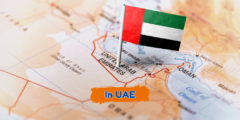Moving to a new country for work can be both exciting and daunting, especially when it involves immersing oneself in a culture vastly different from one’s own. For expatriates relocating to the United Arab Emirates (UAE), cultural adaptation is not just a challenge but a necessity for a successful and fulfilling experience. This article aims to provide expats with valuable insights and tips to navigate the cultural landscape of the UAE.
Understanding Emirati Culture
Cultural Values and Norms
Emirati culture is deeply rooted in tradition, with an emphasis on hospitality, respect, and family values. Understanding and respecting these cultural nuances are crucial for expats to integrate smoothly into their new environment.
Social Etiquettes and Customs
Etiquette plays a significant role in Emirati society, with practices such as greeting with a handshake (using the right hand), accepting refreshments graciously, and refraining from public displays of affection. Being aware of these customs helps expats show respect and avoid unintentional offense.
Importance of Religion in Daily Life
Islam is the predominant religion in the UAE and influences various aspects of daily life, including prayer times, dietary habits, and holidays. Expats should familiarize themselves with Islamic customs and practices to navigate social interactions and workplace dynamics respectfully.
Workplace Dynamics in the UAE
Hierarchical Structure
UAE workplaces typically follow a hierarchical structure, with authority and decision-making centralized at the top. Expats may encounter a more formal work environment compared to what they are accustomed to, where deference to seniority is common.
Communication Styles
Communication in the UAE is often indirect, with an emphasis on politeness and avoiding confrontation. Expats should practice patience and diplomacy when communicating with Emirati colleagues or clients, being mindful of cultural nuances in verbal and non-verbal cues.
Work-Life Balance
While the UAE is known for its bustling business hubs, maintaining a healthy work-life balance is essential for well-being and productivity. Expats should strive to strike a balance between professional commitments and personal time, making time for leisure activities and relaxation.
Tips for Cultural Adaptation
Learning Arabic Phrases
Even basic knowledge of Arabic can go a long way in fostering positive interactions and building rapport with locals. Expats should learn common Arabic phrases for greetings, expressions of gratitude, and basic conversation, demonstrating respect for the local language and culture.
Building Relationships
Cultivating meaningful relationships with Emirati colleagues and neighbors is key to integration and cultural understanding. Expats should invest time in getting to know their peers on a personal level, participating in social gatherings, and showing genuine interest in local customs and traditions.
Respecting Local Traditions
Respecting and adhering to local customs and traditions is essential for expats living in the UAE. This includes dressing modestly, especially in public places and during religious occasions, as well as observing cultural norms related to dining, socializing, and religious practices.
Adapting to Dress Codes
The UAE has conservative dress codes, particularly in public spaces and workplaces. Expats should familiarize themselves with local dress norms and ensure their attire is respectful and appropriate, especially when interacting with Emirati colleagues or visiting government institutions.
Understanding Business Hours
The UAE follows a Sunday to Thursday workweek, with Friday and Saturday designated as the weekend due to Islamic traditions. Expats should be mindful of these differences in business hours and plan their schedules accordingly to avoid misunderstandings and inconvenience.
Overcoming Challenges
Dealing with Homesickness
Homesickness is a common challenge for expats adjusting to life in a new country. Staying connected with loved ones through regular communication, engaging in activities that provide comfort and familiarity, and seeking support from fellow expatriates can help alleviate feelings of homesickness.
Coping with Language Barriers
While English is widely spoken in the UAE, language barriers can still pose challenges in certain situations. Expats should be patient and proactive in improving their Arabic language skills, utilizing language learning resources and seeking opportunities for language practice and immersion.
Navigating Bureaucracy
Navigating bureaucratic processes, such as visa applications, residency permits, and government regulations, can be overwhelming for expats. Seeking assistance from HR departments, legal advisors, or relocation services can simplify the process and ensure compliance with local laws and regulations.
Handling Cultural Misunderstandings
Cultural misunderstandings are inevitable in cross-cultural interactions but can be managed through open-mindedness, empathy, and effective communication. Expats should approach cultural differences with curiosity and respect, seeking clarification when needed and learning from their experiences to foster cultural competence.
Resources for Support
Expatriate Communities
Expatriate communities and social groups offer valuable support networks for expats living in the UAE, providing opportunities for networking, socializing, and sharing experiences. Joining expat groups can help newcomers connect with like-minded individuals and access resources for cultural adaptation and integration.
Cultural Training Programs
Cultural training programs and workshops provide expats with insights into Emirati culture, customs, and business etiquette, equipping them with the knowledge and skills to navigate cultural differences effectively. Employers may offer cultural training as part of expatriate orientation programs or professional development initiatives.
Counselling Services
Counselling services and support groups are available to expats dealing with adjustment challenges, homesickness, or mental health issues. Seeking professional guidance and support can help expats cope with stress, anxiety, and cultural adaptation difficulties, promoting overall well-being and resilience.
Conclusion
Cultural adaptation is a fundamental aspect of the expatriate experience in the UAE, enabling individuals to thrive personally and professionally in a diverse and dynamic environment. By understanding and embracing Emirati culture, navigating workplace dynamics, and seeking support when needed, expats can make the most of their time in the UAE and forge meaningful connections that last a lifetime.
FAQs
- Is it necessary to learn Arabic before moving to the UAE?
- While not mandatory, learning basic Arabic phrases can enhance your experience and facilitate communication with locals.
- How can I overcome feelings of isolation as an expat in the UAE?
- Engaging in social activities, joining expat communities, and maintaining connections with friends and family back home can help combat feelings of isolation.
- Are there any cultural taboos I should be aware of in the UAE?
- Yes, certain topics such as politics, religion, and personal matters should be approached with sensitivity and discretion in Emirati culture.
- What resources are available for expats seeking cultural integration support?
- Expatriate communities, cultural training programs, and counselling services are valuable resources for expats navigating cultural adaptation challenges in the UAE.
- How can I find reliable information about local laws and regulations in the UAE?
- Government websites, legal advisors, and official publications are reliable sources of information regarding local laws, regulations, and procedures in the UAE.










